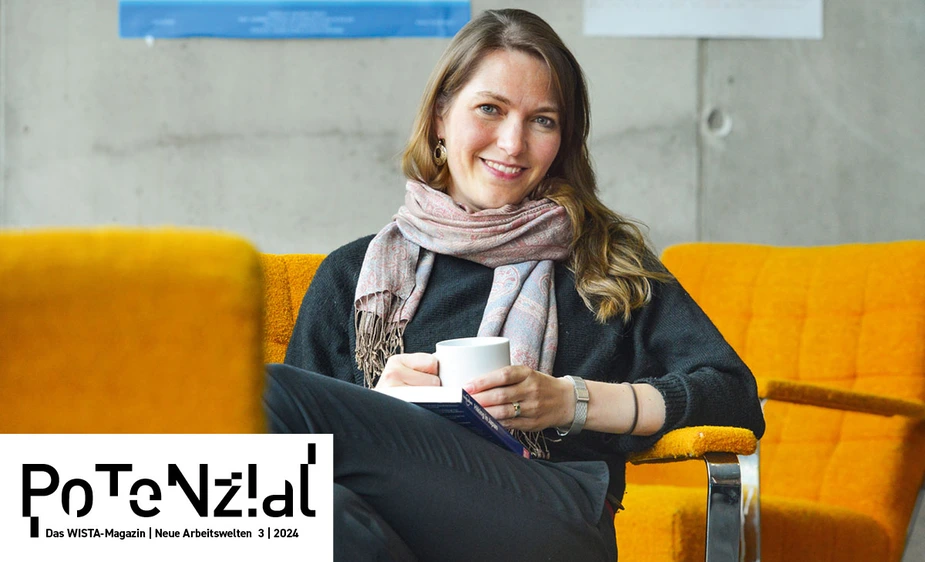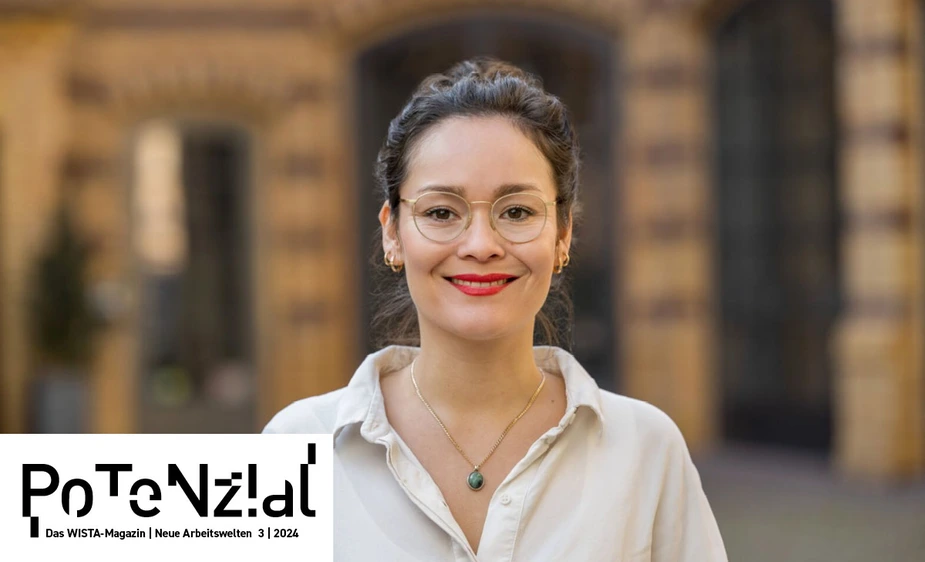A place for talent
ST3AM in Adlershof seeks to reconcile seemingly contradictory worlds of work. Occupational psychologists are helping it succeed with a research project.
“From research in occupational psychology, we know that the workplace and a space’s environmental factors like lighting, acoustics, and colours play an important role in determining how well, how creative, and how effective we can work and thus for our health and well-being,” Annekatrin Hoppe explains. The professor of occupational psychology from Humboldt-Universität zu Berlin details studies that compare working from home and working at an office. They show that employees are more focused on their work at home, while offices give rise to innovative ideas, predominantly through in-person interaction. “Consequently, certain tasks are better or worse suited for different settings,” says Hoppe.
“We also know that employees have two different needs: the need for autonomy and the need to belong.” We generally like to decide when, where, and how we work, which goes very well with mobile and flexible work. At the same time, most people enjoy working with others and seek positive social interactions.
To summarise, we might say: It’s complicated. ST3AM in Adlershof (Rudower Chaussee 28) now seeks to reconcile these seemingly contradictory requirements under one roof. This is a new and experimental approach. So new that Hoppe’s team will accompany the process from a psychological point of view and make adjustments where needed. ST3AM is divided into zones that meet the different needs that workers have. They include areas for focused work, places of encounter, but also solitude spaces for relaxation as well as an interior design that fosters healthy and creative work.
These new worlds of work, says Hoppe, have the potential to meet both needs (autonomy and the sense of belonging). Employees continue to have the opportunity to work flexibly. Features like light and natural colours contribute to a feeling of well-being in the space, designed by the interior designer Urve Liivak. The communal areas are framed by plants, various seating arrangements, and playful elements like swings.
“Spatial design can support creative and productive work,” says Katherina Quispe Bravo, expert for psychological safety and a HU colleague of Hoppe’s. Those environments are beneficial that animate people to experiment without fear, to test and try things out. This could be a laboratory-type environment that is supported through the addition of a playful design. “If we feel psychologically safe in our environments, we contribute more to discussions, learn more, and try new things,” says Quispe Bravo with emphasis. This is less likely when working from home: “Research shows that teams work more successfully face-to-face. Therefore, it is important to create attractive spaces in which people enjoy coming together.”
ST3AM aims to be such a place. “From an occupational psychology standpoint, we will look at the interplay of spatial factors, social processes, and individual preferences at the workplace to investigate what keeps workers healthy, what motivates them, and what stimulates their creativity,” explains Hoppe. “While doing so, we have the possibility of changing environmental factors together with the interior designer.”
The work psychologists can shadow the people working at ST3AM from the outset and look at where they work and what motivates them. Hoppe: “The special thing here is that we can observe a real workplace, which we can—and that’s what’s unique about this—change as we go. We can investigate how various groups experience their work under field conditions.
How important will these types of places be for local talent and modern forms of working in Adlershof? “After the withdrawn work during the pandemic, I believe we urgently need workplaces that promote social interaction and that contribute to people’s well-being, that offer some of the comfort that we find at home,” says Hoppe. "I also believe that we need to get out of our comfort zone again to realise that we not only have a need for the kind of autonomy that we find working from home, but also one for working with others to develop new ideas and make work fun and meaningful.”
Chris Löwer for POTENZIAL
- WISTA-Arbeitswelten - WISTA Management GmbH
- Prof. Dr. Annekatrin Hoppe — Institut für Psychologie (hu-berlin.de)
- Katherina Bravo | HRpepper Management Consultants

